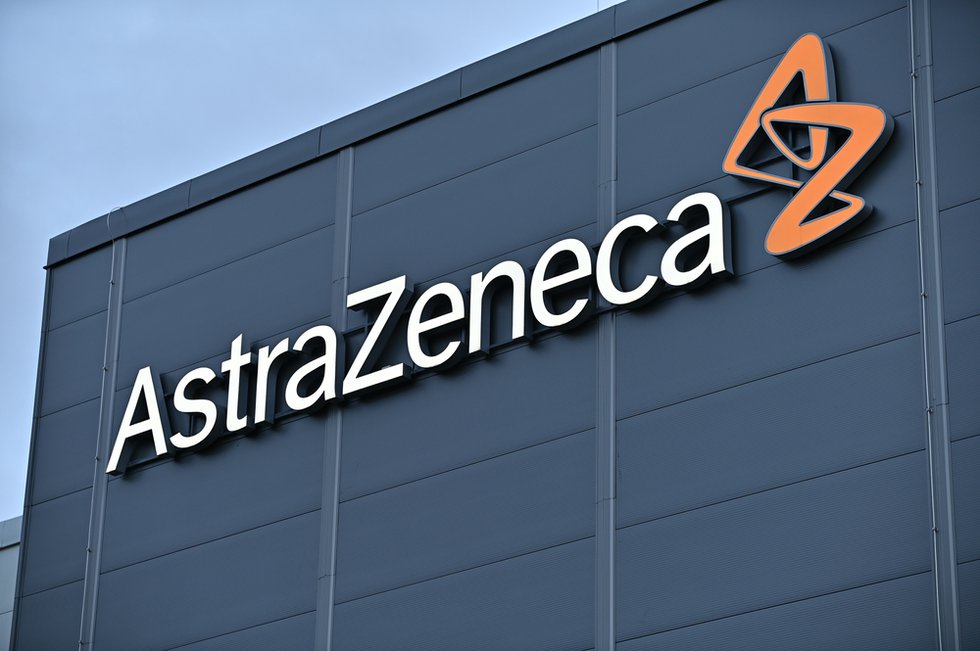AstraZeneca Targets $80 Billion Revenue By 2030

Ahead of AstraZeneca’s investor event at the Discovery Centre, its new £1.1 billion R&D headquarters in Cambridge, the FTSE 100 firm announced plans to launch 20 new drugs by 2030. Many of these drugs could generate over $5 billion annually at their peak.
“To sustain growth beyond 2030, the company will keep investing in transformative technologies and platforms that will shape the future of medicine,” AstraZeneca stated. This strategy highlights the firm’s dedication to remaining at the forefront of pharmaceutical innovation and ensuring long-term success.
Shares in the company, already at new highs on the London Stock Exchange, rose another 118.5p, or 1 per cent, to £122.145. This valuation surpasses Pfizer’s $162 billion, making AstraZeneca the most valuable company on the London market, ahead of Shell. Such a significant rise in share price underscores investor confidence in AstraZeneca’s strategic direction and growth prospects.
This year marks AstraZeneca's 25th anniversary since the merger of British Zeneca and Swedish Astra. Chief Executive Sir Pascal Soriot, who has led the company since 2012, is credited with its transformation through launching new blockbuster drugs, especially in oncology. Under his leadership, AstraZeneca has significantly expanded its product portfolio and strengthened its market position.
Soriot, 64, who in October expressed his intent to lead for another five years, said: “Today, AstraZeneca announces a new era of growth. In 2023, we met the $45 billion revenue goal set a decade ago. With our innovative pipeline, which can transform millions of lives, we now aim for $80 billion by 2030.” His continued leadership is expected to further drive the company's ambitious growth plans.
AstraZeneca plans to maintain its commitment to R&D while focusing on productivity to achieve a mid-30s percentage core operating margin by 2026 and “at least” that range beyond then. This dual focus on innovation and efficiency is seen as critical for sustaining the company's competitive edge and profitability.
The company has seen five consecutive years of growth and has become the largest multinational drugs company in China. It expanded its rare diseases division with the $39 billion purchase of Alexion in 2021, its largest acquisition to date. This strategic acquisition has bolstered AstraZeneca’s capabilities in rare diseases, adding a significant revenue stream and enhancing its global footprint.
Jefferies analysts stated: “The key will be the underappreciated pipeline assets underpinning the vision. We argue pipeline optionality remains perhaps best-in-class, but major new drug catalysts are somewhat scarce until 2025.” This perspective highlights the importance of AstraZeneca’s ongoing R&D efforts and the potential for future breakthroughs.
In other news, GSK, another big UK pharma company, announced positive late-stage trial results for depemokimab to treat severe asthma. Depemokimab could be the first approved “ultra-long-acting” biologic, administered as a twice-yearly injection. Discovered in Stevenage, Hertfordshire, it is set to be manufactured at GSK’s site in Barnard Castle, Co Durham. GSK aims for peak annual sales of over £3 billion.
This is the fifth positive phase III readout from GSK this year, boosting the FTSE 100 company’s pipeline productivity and share price. Despite this, shares fell 20.5p, or 1.1 per cent, to £17.545 this morning. The market reaction suggests that while the trial results are positive, broader market factors may be influencing the share price.
World Liberty Seeks Federal Trust Charter
World Liberty Financial, the crypto venture backed by the Trump family, has applied for a US national bank trust charter... Read more
Saudi Banks Tap Overseas Markets
Saudi Arabia’s banks are borrowing from international markets at their fastest pace on record, as lenders try to squar... Read more
Amazon Continues To Cut 16000 Gone
Amazon has announced plans to cut a further 16,000 roles from its corporate workforce, extending the cost and organisati... Read more
The UK May Have A Voice In Ai
Europe’s AI sector has grown accustomed to playing catch-up. Capital has flowed more slowly than in Silicon Valley, va... Read more
Musk Applies Pressure To BT
Britain’s broadband market has spent the past decade locked in a familiar pattern. Incumbents invested heavily in fibr... Read more
Blackrock Sees EMEA Moving Into Private Assets
BlackRock has warned that investors across Europe, the Middle East and Africa are reshaping portfolios in response to wh... Read more

